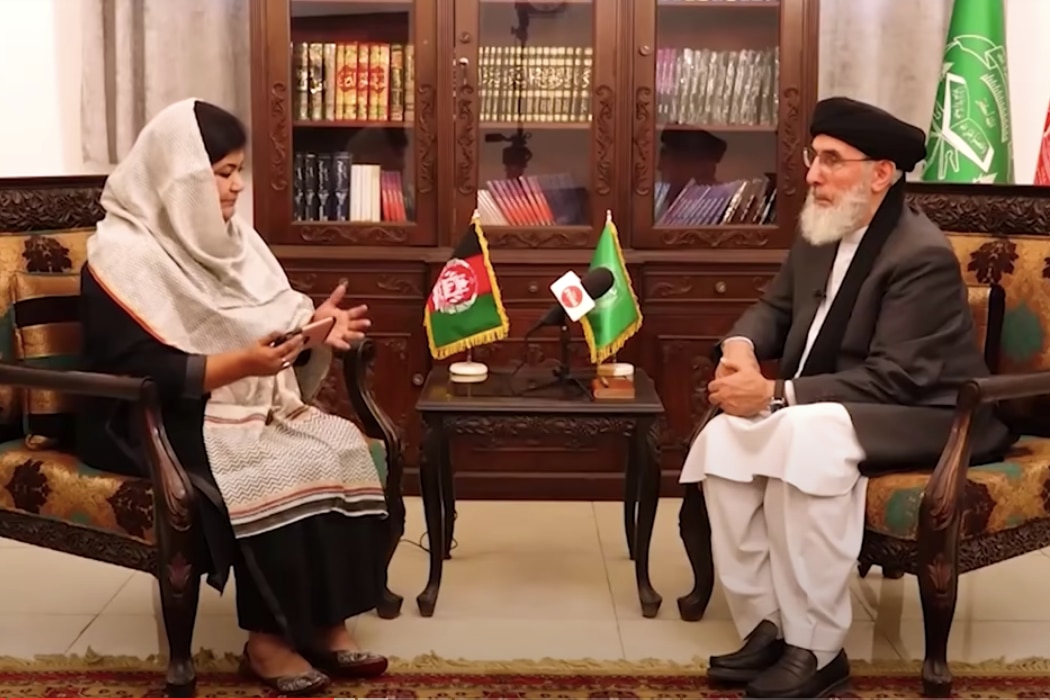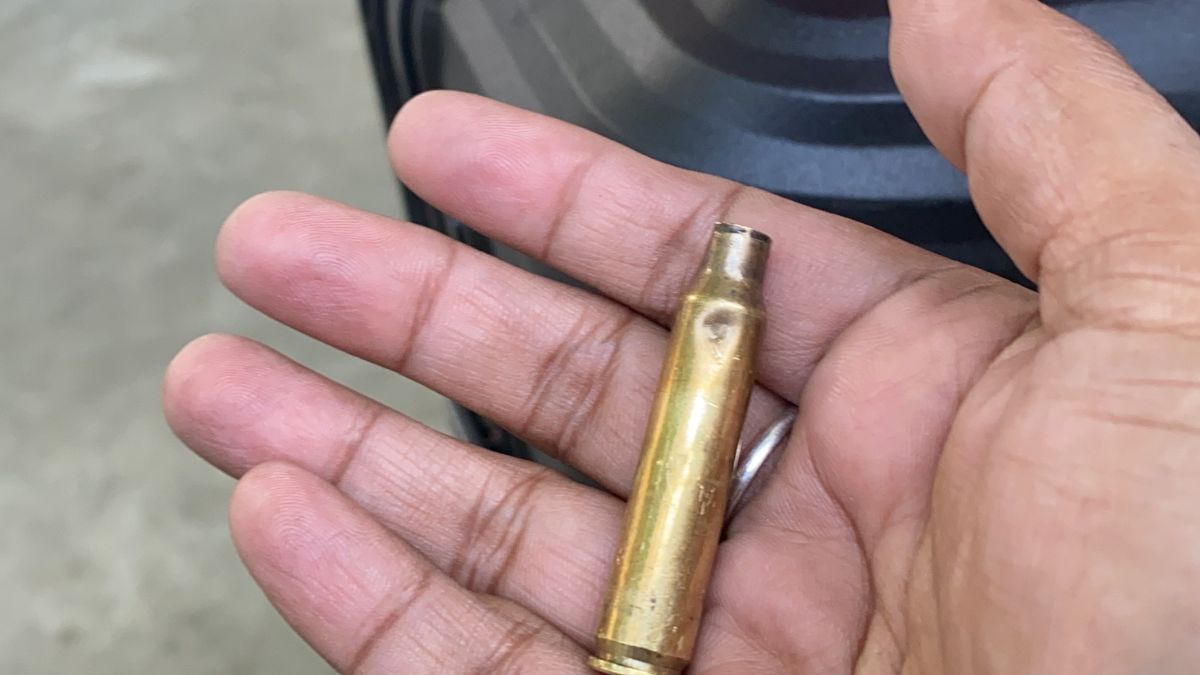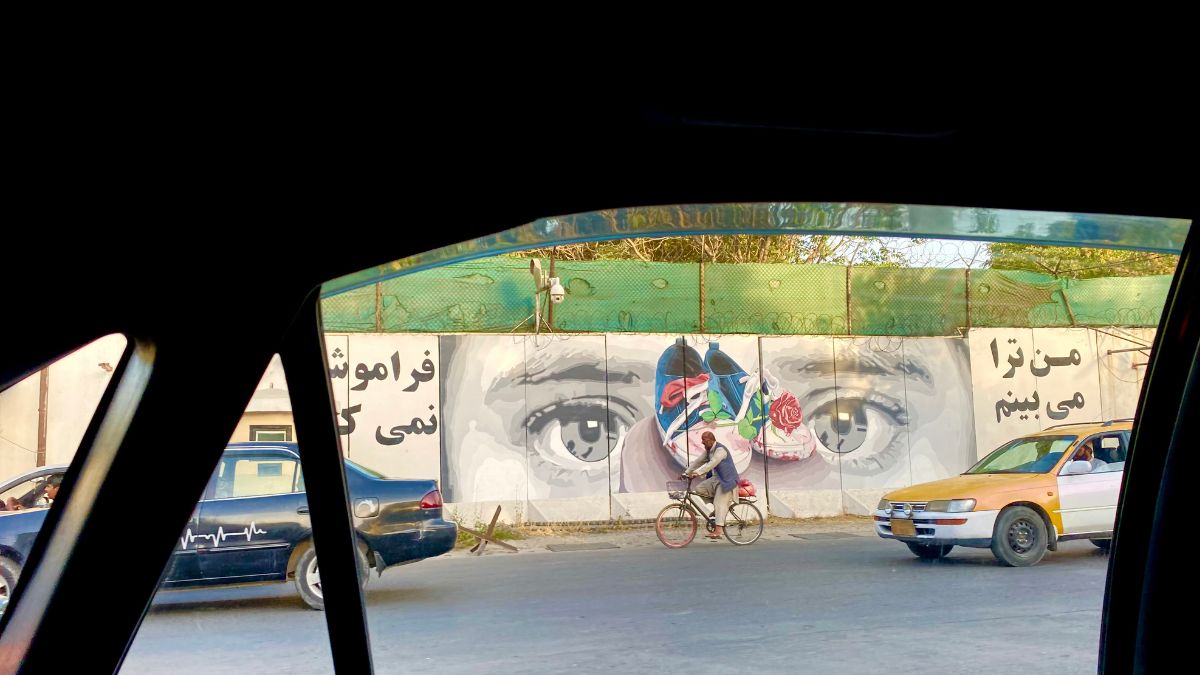A Woman Reporter’s Diary: From Covering Taliban’s Kabul Takeover To Meeting Muttaqi In Delhi
The maiden visit by Amir Khan Muttaqi, the Taliban Foreign Minister of Afghanistan, marks a significant moment in the historical relationship between New Delhi and Kabul. This encounter signifies not just diplomatic engagement but a confrontation with the democratic ideals that India upholds — values that resonate particularly with the fearless women of Afghanistan and around the world.
During this particular visit, Indian women journalists have once again shown their willingness to go to great lengths, even if that meant confronting the Taliban and their own government to fight for equality and their rights in the face of discrimination.
Afghanistan, a land with a rich yet tumultuous history characterised by the rise and fall of empires and superpowers, finds itself on the brink of transformation once again as the Taliban deepens its control over the country. The outcome of this transformation — whether positive or negative — will ultimately rest in the hands of the Afghan people over time. This is the same Taliban that ruled Afghanistan from 1996 to 2001 until they were ousted by the United States, only to regain power in 2021.
Muttaqi's visit to India conveyed not only a powerful message to both the Taliban regime and the global community that journalism is not a crime, but it also manifested that Indian women journalists leave no stone unturned when it comes to doing their job, even as they know how to assert the rights given to them under the Constitution of India.
The controversy surrounding Muttaqi’s two press conferences during his six-day visit could be seen as a turning point in how Afghanistan, under the Taliban, navigates its path forward when it comes to eradicating gender discrimination, which will require the fundamentalist Islamic group to go against its ideology.
Kabul 2021 To Delhi 2025
One of the reasons I was eager to attend Muttaqi’s press conference in my own country was to demonstrate to the Taliban that their regressive ideology of denying women their basic human rights will not be accepted in India, especially if they wish to engage with us for geopolitical and strategic reasons.
I had witnessed the Taliban's resurgence in 2021 from ground zero — right before and after their takeover of Kabul. I saw how, apart from numerous other challenges, women's presence in public life vanished almost overnight. Although the faces of helpless men, desperate children, and youth continue to haunt me, the plight of Afghan women has troubled me deeply since my return from that country.
 Nayanima Basu interviewing Ex-PM of Afghanistan Gulbuddin Hekmatyar on 15 August, 2021.
Nayanima Basu interviewing Ex-PM of Afghanistan Gulbuddin Hekmatyar on 15 August, 2021.
As a journalist who values ground reportage, it was a dream-come-true for me to travel to Afghanistan in August 2021. I arrived in Kabul on August 8, excited with various story ideas, as all reporters are.
Armed only with my diary and a small reporting kit, I prepared to cover the NATO troops withdrawal as it abruptly concluded a 20-year-long war and returned the country to Afghan control, which never happened. While the US-led NATO troops did made their exit from that country, little did I know at that time that Afghanistan would soon fall back into the hands of the Taliban, who were advancing into the capital city with the so-called 'Peace Deal' in hand and significant ground support, at a blistering pace.
The ‘Peace Deal’, officially called ‘Agreement for Bringing Peace to Afghanistan’, was signed between the United States, then under first tenure of President Donald Trump, and the Taliban in February 2020. The pact - signed in Doha, Qatar - set the stage for the withdrawal of U.S. and NATO troops from Afghanistan and initiated intra-Afghan negotiations to achieve a political settlement.
My experiences in Afghanistan can be clearly divided into two distinct phases: before and after the Taliban's return to power. Therefore, I saw firsthand how women who would roam on the streets of Kabul or Mazar-e-Sharif in a free-spirited manner suddenly seemed to be pushed into an eternal darkness.
 Basu holding bullet shell as firing erupted in Kabul International Airport on 16 August, 2021.
Basu holding bullet shell as firing erupted in Kabul International Airport on 16 August, 2021.
In the ensuing period after I returned from Afghanistan, I learnt how the Afghan women got subjected to the same fate that they faced back in 1996. This might be a new and modern Taliban, who spoke English or knew how to handle X, but their mindset remained stuck in archaic laws, which only they believed in. Other Islamic countries like Saudi Arabia or their neighbours, Pakistan or even Iran, do not follow such regressive policies when it comes to the treatment of women.
According to the latest UNESCO Report, nearly 2.2 million Afghan girls and women are barred from receiving secondary and higher education. Since coming to power, the Taliban has issued more than 70 decrees violating the rights of girls and women — especially their right to education.
Face To Face With The Taliban
When the news of the visit of the Taliban delegation led by Amir Khan Muttaqi to India broke, I was sure that any news conference conducted by him would be done with those journalists who write on foreign policy and security. It never occurred to me that the Taliban would be permitted to run their Stone Age era ideology on my country’s soil.
But the contrary happened. In the absence of a stern directive from New Delhi, Afghanistan’s Acting Foreign Minister Muttaqi and his team of Taliban men thought they could do a press conference and get away with it by inviting only a handful of male journalists.
On October 10, immediately after his first in-person bilateral meeting with External Affairs Minister S. Jaishankar in the capital city's Hyderabad House, the Taliban Foreign Minister held his first press conference with the Indian media. This event took place inside the Embassy of Afghanistan in New Delhi, which had been largely nonfunctional, with only a skeletal staff managing the upkeep of the grand building since 2021. The embassy is located on a prime street in Delhi, where the Embassy of the United States and the High Commission of Canada are also situated.
As the press conference concluded, the reality came to light that the Taliban delegation did not invite a single woman journalist. The women journalists severely protested the move, which forced India's Ministry of External Affairs to state just one line that it had “no involvement in the press interaction”, while refusing to tell the Taliban that their Islamic fundamentalism will not be allowed in India, where the Constitution is supreme and there is no gender discrimination. That would have conveyed a message of compassion and support to all Afghan women living both inside and outside Afghanistan.
By not issuing a statement on this serious matter, the Indian government not only failed its own women journalists but also dashed the hopes and aspirations of all those Afghan women who see India as a free and liberal country where a woman can afford to dream and can also work towards achieving that dream.
The government, while engaging the Taliban, has made it crystal clear that it will not grant formal recognition to them. So far, only Russia has given formal recognition to the Taliban government in Afghanistan. Therefore, the Embassy of Afghanistan, equipped with an Afghan staff, which continues to fly the former tricolour of the republic that refused to acknowledge Muttaqi as their Foreign Minister, cannot be regarded as Afghanistan’s territory — an excuse that many so-called experts gave to defend the Indian government's silence.
 Streets of Kabul before Taliban takeover.
Streets of Kabul before Taliban takeover.
As all the women journalists, particularly those who write on foreign policy issues, were up in arms, I, along with my colleagues in the beat, demanded not only an official protest to be lodged by the government but also sought another press conference from the Taliban government. The Taliban finally relented and Muttaqi called another press conference a day after his visit to the historic Islamic seminary, Darul Uloom Deoband, in Uttar Pradesh.
This time, I, along with my other industry colleagues, decided that we will stage a boycott if they do not allow our male counterparts to attend. The second press conference by the Taliban in New Delhi was then made ‘open to all’ without any gender bias or discrimination.
Confronting Muttaqi
The second press conference took place on Sunday, October 12, where the Taliban Minister announced, rather nonchalantly, that the exclusion of women journalists from the first presser happened due to a “technical issue”, and that it had been “called on a short notice”. The presser, interestingly, once again took place inside the main conference hall of the Afghanistan Embassy where the women turned up in their usual attire.
Entering the Embassy felt eerie, as I had last been inside these premises when I came to collect my visas on August 2, 2021. Every nook and cranny looked the same, and even the official cars of the former diplomats were parked in perfect alignment. The tricolour flag gleamed in the golden rays of the October sun.
But in reality, Afghanistan has changed; the tricolour flag has now been replaced with the white flag of the Islamic Emirate of Afghanistan (IEA) with the ‘Shahada’ emblazoned on it.
Minutes before Muttaqi entered the Embassy in his cavalcade as he made his way from the Hotel ITC Maurya, where the entire delegation is putting up, some of his men set up the venue where they installed the white flag. Muttaqi was seated in front of the flag and faced a barrage of questions from women journalists who questioned him repeatedly on their regressive women-centric policies.
Muttaqi was also questioned for the killing of Reuters photojournalist Danish Siddiqui on 16 July, 2021, in Spin Boldak area of Afghanistan, near the Pakistan border. Muttaqi was even asked to apologise for Danish’s killing.
I asked Muttaqi how he plans to ensure the safety of our diplomats and the Indian Embassy in Kabul, which was attacked in 2008, resulting in the loss of lives. External Affairs Minister Jaishankar has announced that India will reopen the embassy, and it will become fully operational as it was before August 15, 2021.
I remember being questioned by one of the Indian Embassy officials in Kabul in 2021 about the reason for my visit there despite Danish Siddiqui's death, to which I replied, “I am here to do my job as a reporter. Rest I leave to circumstances". And I continue to say the same thing to this day to my country, and to the world: “I am here to do my job as a journalist. I owe it to my readers.”
(Views are personal. Nayanima Basu is an independent journalist and author of 'The Fall of Kabul: Despatches From Chaos')
india